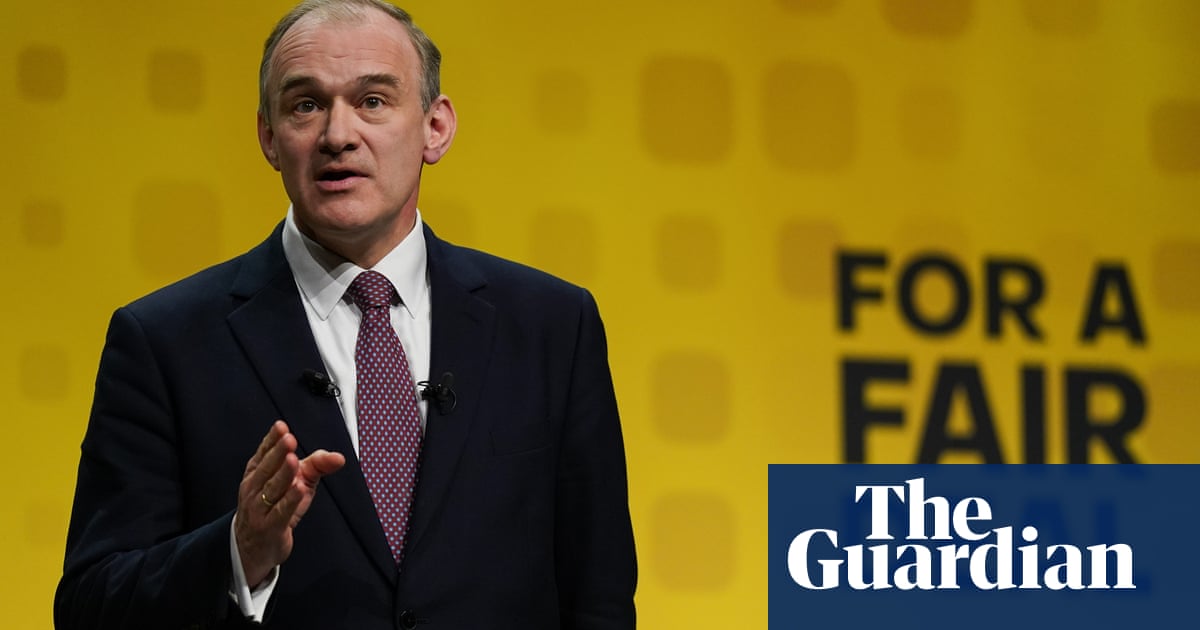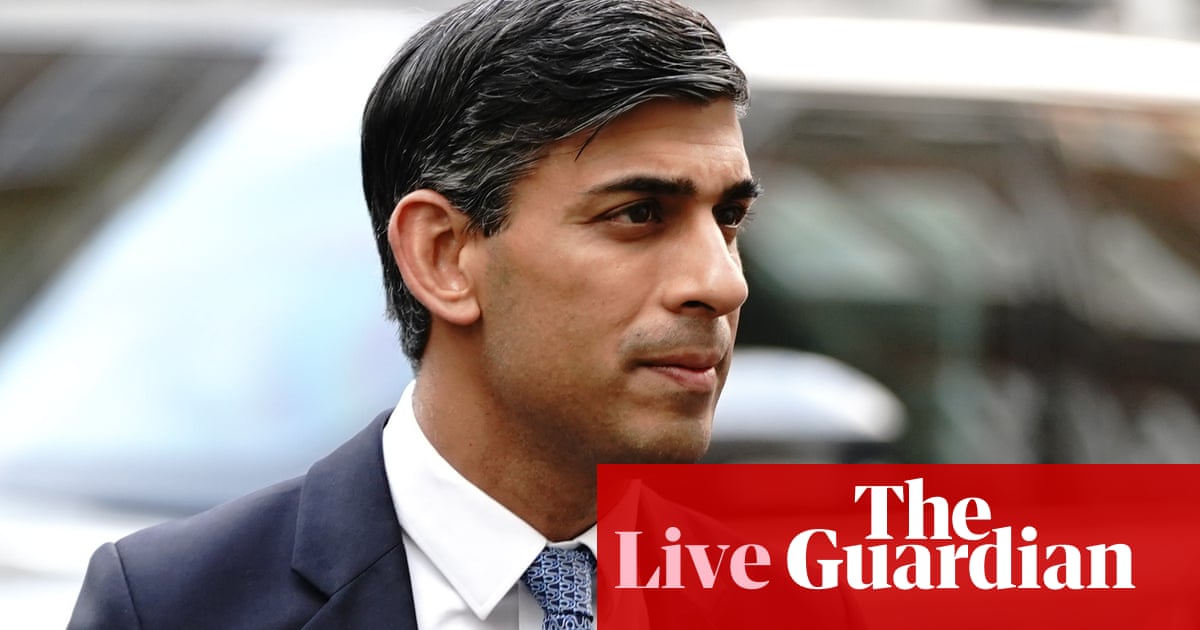
Ed Davey has said he is “humbled” by the support shown for the Liberal Democrats after the exit poll for the 2024 general election showed them on course to win 61 seats, close to their best results in modern political history and a near tenfold increase on their 2019 total.
After a campaign marked by media-friendly stunts from the Lib Dem leader, underpinned by a policy platform focusing on areas such as care and cleaner rivers, the party looks to have taken dozens of seats from the Conservatives, capitalising on disquiet among centrist Tory voters.
A tally of 61, if confirmed, would be one short of the 62 secured under Charles Kennedy in 2005. After getting 57 seats in 2010 and joining a coalition with the Conservatives, the party was punished by voters, winning eight seats in 2015, 12 in 2017 and 11 in 2019.
In a tweet posted shortly after the exit poll emerged at 10pm on Thursday, Davey suggested the tally could rise beyond 62. “The Liberal Democrats are on course for our best results in a century, thanks to our positive campaign with health and care at its heart,” he said.
“I am humbled by the millions of people who backed us to both kick the Conservatives out of power and deliver the change our country needs.”
According to seat-by-seat extrapolations, among the possible Conservative seats set to be taken by the Lib Dems were Godalming and Ash in Surrey, held by Jeremy Hunt, the chancellor; and Surrey Heath, formerly held by Michael Gove, who stepped down at the election.
The justice secretary, Alex Chalk, was seen as very likely to lose his Cheltenham seat to the Lib Dems, having won a majority of less than 1,000 in the 2019 election.
Davey seized media attention during the election campaign with stunts including a bungee jump, falling off a paddleboard and going down a water slide. He and the party insisted that all these events were tied into policies and helped get their ideas across.
Daisy Cooper, the party’s deputy leader, said this appeared to have paid off. “The fact of the matter is, we’ve said time and again that while we don’t take ourselves that seriously, we do take our politics very seriously,” she told BBC News. “And with every single one of those stunts, there was a very serious message about our plans.”
The result is a vindication of Davey’s decision to focus ruthlessly on a series of target seats, many in the south and south-west of England, and some in Scotland.
In 2019, under Jo Swinson, the party won 12% of the vote, but it was spread around the country, reducing the number of seats won. After Davey took over the leadership, he launched an inquest into the election from which the new strategy emerged.
A key part of the success came in so-called “blue wall” seats, affluent commuter belt constituencies around London or other cities, where more moderate Tory voters were becoming exasperated with the governments of Boris Johnson and then Liz Truss.
In June 2021, this emerged when the Lib Dems pulled off an extraordinary byelection win in the Buckinghamshire constituency of Chesham and Amersham, overturning a 16,000 Conservative majority to take the seat.
This spearheaded a wave of Lib Dem byelection wins over the Tories, which also took in more rural seats such as North Shropshire.
The party began the election campaign with a target list of about 50 seats, but this was expanded as previously safe Conservative seats came into view.
Among formerly ultra-safe Tory seats that looked likely to fall were several in Oxfordshire, including Witney, formerly represented by David Cameron, and Henley, where the MP was once Boris Johnson.












